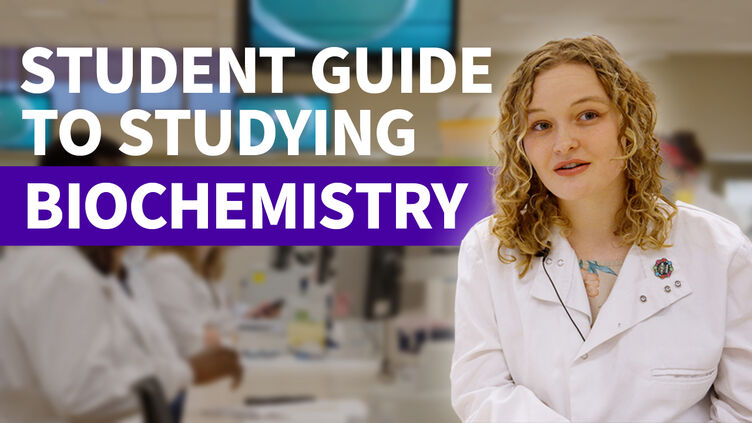Biochemistry
Biochemistry at Sheffield allows you to explore the basis of life at the molecular level. You’ll learn about cells, proteins, and DNA, and how these molecules interact to sustain life.
Our courses
We offer a range of options, including the traditional three-year BSc and our four-year integrated masters (MBiolSci) that gives you an extra year of research experience. You can apply to spend a year working on placement or studying abroad, once you join the University.
Learn more about biochemistry at Sheffield, including details of our modules:
2027-28 entry
2026-27 entry
Accredited degrees
Our undergraduate degrees in biochemistry are accredited by the Royal Society of Biology with Advanced Accreditation for our integrated masters programme. This shows employers that you've developed the practical skills and scientific knowledge that they're looking for.
What our students say
The University of Sheffield is ranked number one in the Russell Group for "student voice" in the subject of Molecular Biology, Biophysics and Biochemistry
— National Student Survey (NSS) 2025

International undergraduate scholarships
We are offering scholarships of £2,500 for each year (subject to a 60% average) of your undergraduate degree. The maximum value is £10,000 for four-year programmes.


